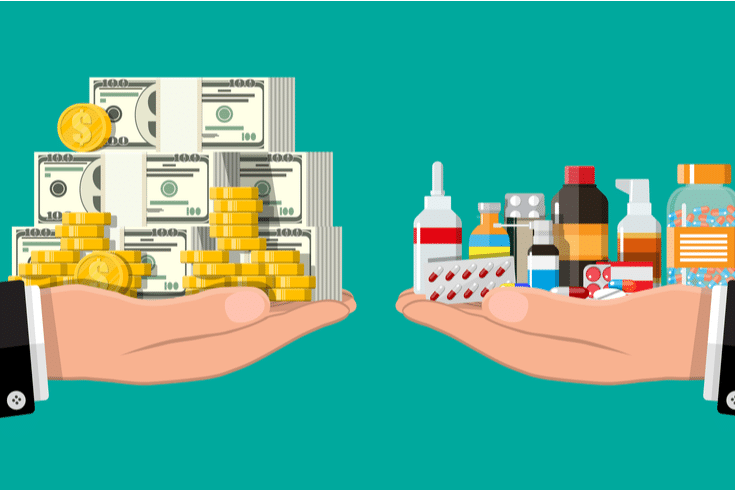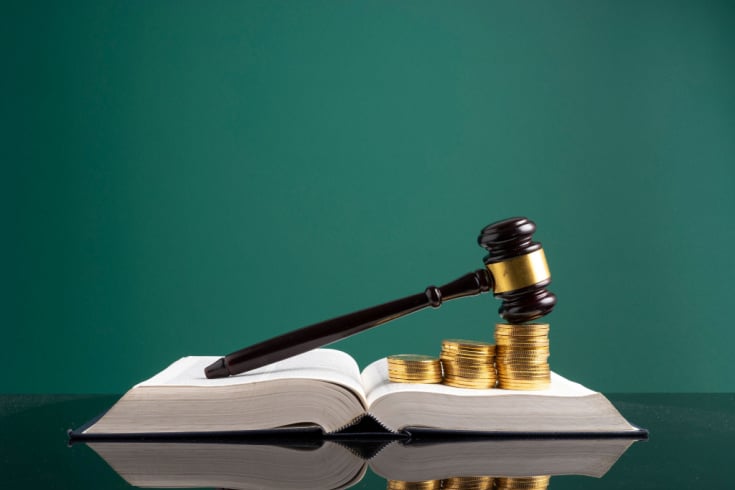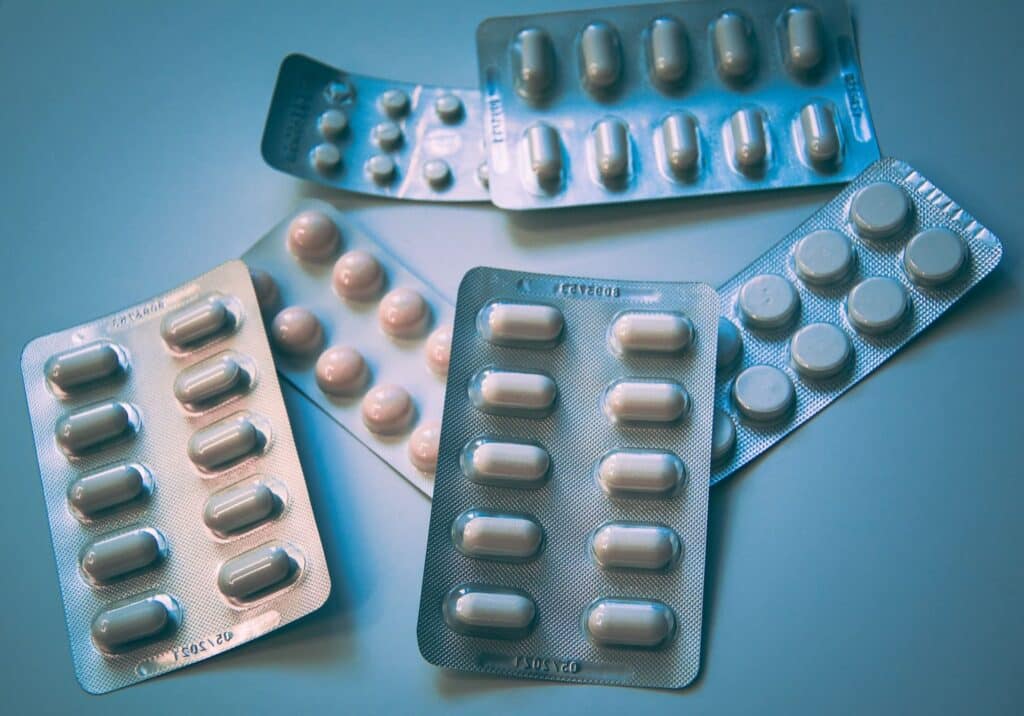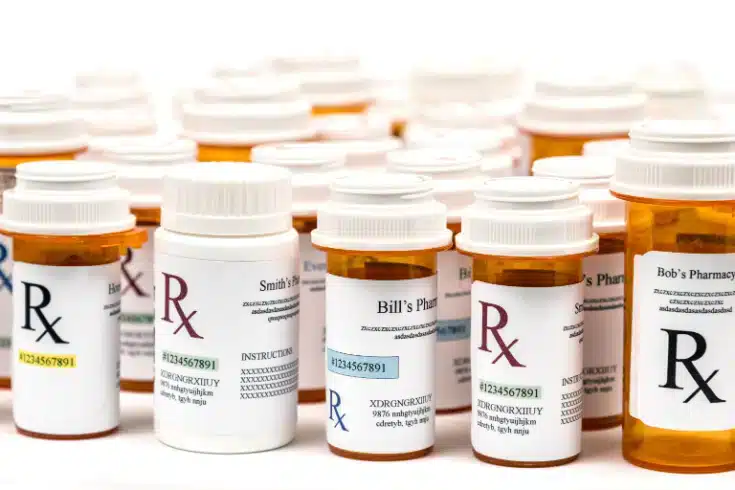What is the Surcharge System under the 'Japanese Pharmaceutical and Medical Device Act'? Explanation of Targeted Actions and Cases for Reduction or Exemption

Under the Japanese Pharmaceutical Affairs Law, false and exaggerated advertising of products such as pharmaceuticals and cosmetics is prohibited. If this law is violated, a fine may be imposed.
The amount of the fine is calculated based on the sales generated by the advertisement that violated the Pharmaceutical Affairs Law. Therefore, the fine could potentially be substantial, so caution is required.
In this article, we will explain the actions subject to the fine system under the Pharmaceutical Affairs Law and the cases in which the fine may be reduced.
What is the Surcharge System in the Japanese Pharmaceutical and Medical Device Act?

The Japanese Pharmaceutical and Medical Device Act (Act on Securing Quality, Efficacy and Safety of Products Including Pharmaceuticals and Medical Devices) is a law that regulates the manufacturing, sales, labeling, and advertising of pharmaceuticals and other related products to ensure their quality, efficacy, and safety.
In August of Reiwa 3 (2021), the revised Pharmaceutical and Medical Device Act was enforced. The law has now become stricter against false and exaggerated advertising of pharmaceuticals and cosmetics, leading to orders for payment of surcharges and corrective measures.
Before the revision, if an advertisement violated the Pharmaceutical and Medical Device Act, there was a provision for imprisonment and fines. However, the maximum fine was 2 million yen, which was criticized for its lack of deterrent effect.
Furthermore, there was an increase in incidents violating the prohibition of false and exaggerated advertising, such as disputes over papers and advertisements for hypertension medication violating the Pharmaceutical and Medical Device Act.
Therefore, referencing corrective measures in the West and provisions of other domestic laws, a surcharge system, stricter than fines, was established.
The amount of the surcharge, unlike the previous fines, has no maximum limit and is determined based on sales. Therefore, depending on the sales, the amount could potentially be quite large.
Related article: What are the penalties and arrest requirements under the Pharmaceutical and Medical Device Act? Explaining points to avoid[ja]
Targeted Actions
The actions targeted by the surcharge system under the Japanese Pharmaceutical and Medical Device Act (PMD Act) are false and exaggerated advertisements of pharmaceuticals, quasi-drugs, cosmetics, medical devices, or regenerative medicine products.
No one shall advertise, describe, or disseminate false or exaggerated articles about the name, manufacturing method, efficacy, effect, or performance of pharmaceuticals, quasi-drugs, cosmetics, medical devices, or regenerative medicine products, whether explicitly or implicitly.
Article 66, Paragraph 1 of the PMD Act[ja]
Examples of advertisements that violate this include, for pharmaceuticals, advertisements indicating ingredients that are not included, or advertisements using expressions such as “This medicine will cure diabetes.” For cosmetics, advertisements using expressions such as “Removes spots” or “Whitens just by applying” are also violations.
For cosmetics, the range of efficacy that cosmetics can claim is defined in a notification by the Ministry of Health, Labour and Welfare, so care must be taken not to exceed this range.
Even if a product does not fall under pharmaceuticals or medical devices, if it claims the efficacy and effects of a pharmaceutical, it is considered a pharmaceutical and is subject to regulation under the PMD Act.
While there is a view that products considered as pharmaceuticals are not subject to surcharges for false and exaggerated advertising as they are regulated by Article 68 of the PMD Act and do not violate Article 66, Paragraph 1 of the PMD Act, there is a sufficient possibility that they could be subject to surcharges as a violation of Article 66, Paragraph 1 of the PMD Act as they are treated as “pharmaceuticals” in the wording, so caution is necessary.
For example, while supplements are not pharmaceuticals, if they advertise effects similar to pharmaceuticals, such as “Cures XX disease just by taking it,” and if this is considered false or exaggerated advertising, it could potentially be subject to a surcharge as a violation of Article 66, Paragraph 1 of the PMD Act.
Please refer to another article for more information on advertising regulations under the PMD Act.
Related article: What are the advertising regulations under the PMD Act? Explaining the points to create advertisements with legal expressions[ja]
Who is Subject to Fines

As stated in Article 66, Paragraph 1 of the Japanese Pharmaceutical and Medical Device Act (PMD Act), “No person shall…advertise false or exaggerated articles…”. Therefore, anyone who advertises falsely or exaggerates about pharmaceuticals and other products can be considered a violator. This means that not only the companies that developed the product, but also advertising agencies, newspapers, and affiliates who received requests from them, could potentially be subject to fines.
According to Article 75-5-2, Paragraph 1 of the PMD Act, which establishes the fine system, the amount of the fine is calculated based on the “consideration for transactions conducted during the fine-targeted period”.
In the administrative communication from the Ministry of Health, Labour and Welfare, “transactions” are exemplified as those conducted by manufacturers, wholesalers, and retailers, etc. It is explicitly stated that “transactions conducted by advertising media businesses such as newspaper companies, magazine companies, broadcasting businesses, internet media companies, and advertising agencies, service providers, etc. who mediate and broker advertisements for these advertising media businesses” are not included.
Therefore, it is understood that advertising agencies, newspapers, and affiliates are generally not subject to fines, as there is no consideration for transactions that would serve as a basis for the fine amount.
However, those who violate Article 66, Paragraph 1 of the PMD Act may be subject to criminal penalties or administrative orders. Therefore, even advertising agencies must be careful not to advertise falsely or exaggerate.
Calculation Method for Administrative Monetary Penalties
According to Article 66, Paragraph 1 of the Japanese Pharmaceutical and Medical Device Act, the amount of administrative monetary penalties for violations is, in principle, 4.5% of the sales of the product in question during the period of the violation.
As an exception, if transactions of the product in question were conducted during the period from the day the violation was ceased until the earlier of (a) the day six months have passed since the cessation of the violation, or (b) the day measures were taken to eliminate the risk of misunderstanding caused by false or exaggerated advertising, the penalty is 4.5% of the sales of the product in question during the period from the violation to the last day of the transaction of the product, up to a maximum of three years in addition to the period of the violation.
Source: Ministry of Health, Labour and Welfare|Introduction of Administrative Monetary Penalties[ja]
As such, the amount of the administrative monetary penalty is determined based on the sales of the product that was falsely or exaggeratedly advertised. Therefore, the more the sales increase due to the influence of the advertisement, the higher the penalty will be.
Furthermore, even if you stop false or exaggerated advertising, if you continue to trade the product in question, the “penalty target period,” which is the basis for calculating the administrative monetary penalty, will be extended. Therefore, if you have falsely or exaggeratedly advertised, it is advisable to stop not only the advertisement but also the trading of the product in question.
Three Differences Between the Surcharge Systems of the Pharmaceutical Affairs Law and the Act against Unjustifiable Premiums and Misleading Representations
Just like the Pharmaceutical Affairs Law (Japanese Pharmaceutical Affairs Law), a surcharge system is also established under the Act against Unjustifiable Premiums and Misleading Representations (Japanese Act against Unjustifiable Premiums and Misleading Representations).
While both surcharges are imposed on those who violate regulations regarding product labeling and advertising, there are several differences in their target behaviors and requirements. The three main differences are as follows:
- Surcharge calculation rate
- Surcharge reduction system
- Subjective requirements of the violator
Surcharge Calculation Rate
The surcharge calculation rate under the Pharmaceutical Affairs Law is set at 4.5% of sales, as mentioned above. However, the surcharge calculation rate under the Act against Unjustifiable Premiums and Misleading Representations is set at 3% of sales.
If you commit an act subject to either surcharge, you will be charged under both the Act against Unjustifiable Premiums and Misleading Representations and the Pharmaceutical Affairs Law. In such cases, a reduction is provided for the overlapping amount (3% of sales) (Article 75-5-3 of the Pharmaceutical Affairs Law).
Surcharge Reduction System
Under the Act against Unjustifiable Premiums and Misleading Representations, if you voluntarily refund sales to victims of labeling and advertising regulation violations, the amount of the refund will be deducted from the surcharge.
On the other hand, the Pharmaceutical Affairs Law does not provide a system for reducing the surcharge even if sales are refunded to victims.
Subjective Requirements of the Violator
Subjective requirements refer to factors related to the violator’s state of mind, such as the violator’s understanding when committing the violation.
Under the Act against Unjustifiable Premiums and Misleading Representations, you will only be subject to a surcharge if you violated labeling or advertising regulations and you were unaware that your representation was unjustifiable, and you neglected to take reasonable care not to be unaware.
In other words, those who unintentionally committed a violation despite being careful will not be subject to a surcharge.
However, under the Pharmaceutical Affairs Law, a surcharge is imposed regardless of the violator’s understanding, as it simply stipulates that “no one” should violate advertising regulations.
Therefore, even if you believe that you are not making false or exaggerated advertisements, you will become subject to a surcharge as soon as you make such an advertisement.
As these differences show, the surcharge system under the Pharmaceutical Affairs Law is stricter than that under the Act against Unjustifiable Premiums and Misleading Representations, as it is believed that violations under the Pharmaceutical Affairs Law can cause significant harm to people’s health and bodies.
Cases Where Surcharge Payments are Exempted or Reduced

Earlier, we explained that there is no reduction system for surcharges under the Japanese Pharmaceutical and Medical Device Act through voluntary refunds. However, this does not mean that surcharges are never reduced or exempted.
Specifically, ① if you voluntarily report that you have made false or exaggerated advertisements, and ② if the sales amount resulting from a violation of advertising regulations is 50 million yen or less, no surcharge will be imposed.
Also, in cases where ③ orders for improvement of business operations, orders related to violation of advertisements are issued, or when permissions or registrations are cancelled, there may be cases where no surcharge is imposed at the discretion of the Minister of Health, Labour and Welfare.
In case of ①, the amount of the surcharge will be reduced by 50%, but if you voluntarily report while under the supervision and guidance of the Ministry of Health, Labour and Welfare or prefectural governments, the surcharge will not be reduced (Article 75-5-4 of the Japanese Pharmaceutical and Medical Device Act).
Therefore, in order to receive a reduction through voluntary reporting, it is necessary to promptly report to the Minister of Health, Labour and Welfare when you notice a violation of the Japanese Pharmaceutical and Medical Device Act due to false or exaggerated advertisements.
Potential for Affiliate Marketers to Receive Regulatory Orders

As previously mentioned, the fines under the Japanese Pharmaceuticals and Medical Devices Act are calculated based on the total value of the pharmaceuticals and other products involved. Therefore, the fines are imposed on businesses that have profited from the manufacture and sale of the offending products.
In other words, media outlets that have published offending advertisements or affiliate marketers involved in such advertisements will not be ordered to pay these fines.
However, there is a possibility that media outlets and affiliate marketers could receive regulatory orders based on Article 72-5 of the Japanese Pharmaceuticals and Medical Devices Act.
Under the previous version of the Japanese Pharmaceuticals and Medical Devices Act, those who advertised unapproved pharmaceuticals and other products in violation of Article 68 of the Act were subject to regulatory orders.
With the amendment of the Japanese Pharmaceuticals and Medical Devices Act in Reiwa 1 (2019), those who violate Article 66, Paragraph 1 of the Act have been added as subjects of regulatory orders. This means that anyone who makes false or exaggerated advertisements could potentially be subject to regulatory orders.
The content of these regulatory orders includes:
- Orders to cease false or exaggerated advertisements
- Public announcements related to necessary measures to prevent the recurrence of false or exaggerated advertisements
- Other measures sufficient to prevent the occurrence of public health risks
Among these, if a public announcement is made, it will become widely known that the person is involved in illegal advertising, which could potentially hinder their future activities.
These regulatory orders can be issued even if the offending actions under the Japanese Pharmaceuticals and Medical Devices Act have been stopped. Therefore, it can be said that affiliate marketers need to pay close attention to whether their advertisements violate the Japanese Pharmaceuticals and Medical Devices Act.
Related article: Does the type of product change the violation of advertising regulations? Explanation of examples of violation expressions[ja]
Summary: Consult a Lawyer for Any Questions Regarding the Surcharge System of the Japanese Pharmaceutical and Medical Device Act
The Japanese Pharmaceutical and Medical Device Act has been amended, introducing a surcharge system for false and exaggerated advertising violations.
The amount of the surcharge is determined based on sales, and there is no maximum limit, so the amount to be paid in case of violation can be substantial.
Even if a surcharge is not imposed, receiving an order for measures can significantly affect your credibility.
It can be difficult to understand what kind of advertising expressions constitute a violation of the Japanese Pharmaceutical and Medical Device Act, and what kind of cases are subject to the surcharge. Therefore, if you are creating or posting advertisements for products that are likely to be subject to the Japanese Pharmaceutical and Medical Device Act, such as pharmaceuticals, cosmetics, medical devices, and other supplements, please consult with a lawyer who has specialized knowledge and experience as early as possible.
Introduction to Our Firm’s Measures
Monolith Law Office is a legal office with high expertise in both IT, particularly the Internet, and law. We provide services such as legal checks of articles and landing pages, creation of guidelines, and sampling checks for various entities including media operators, review site operators, advertising agencies, direct-to-consumer (D2C) businesses such as supplements, cosmetic manufacturers, clinics, and Application Service Provider (ASP) businesses. Details are provided in the article below.
Category: General Corporate





















